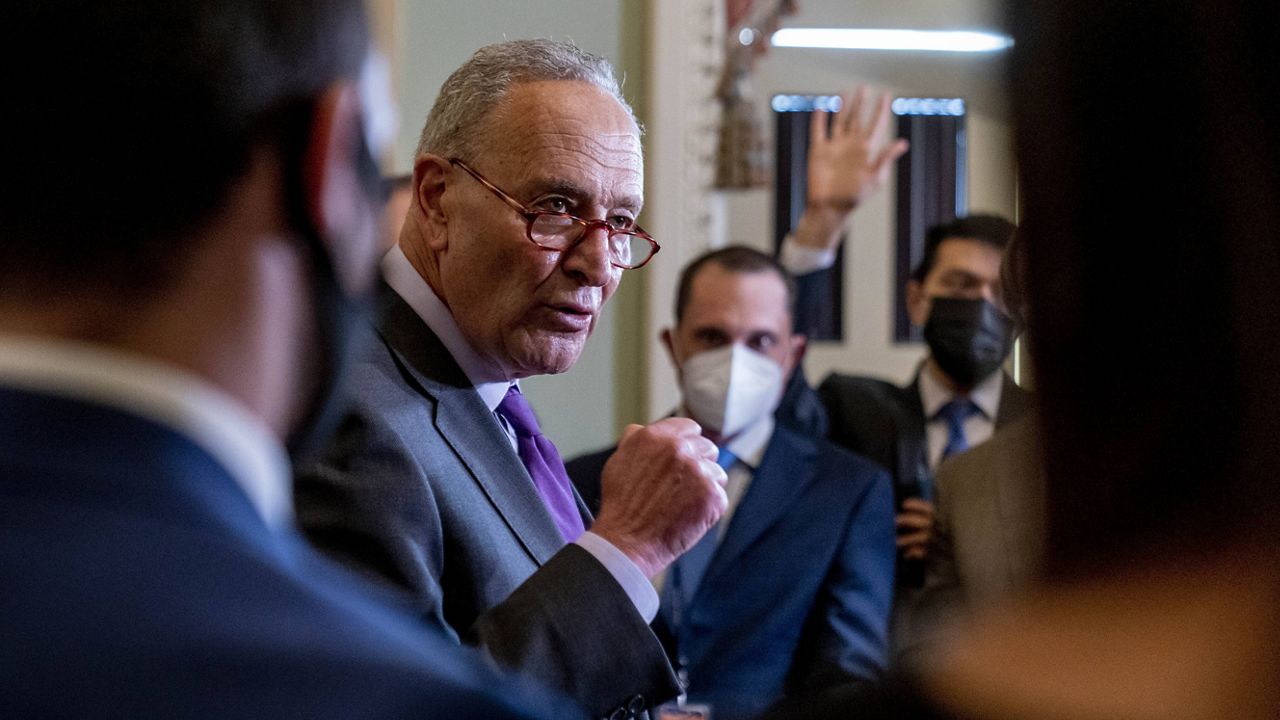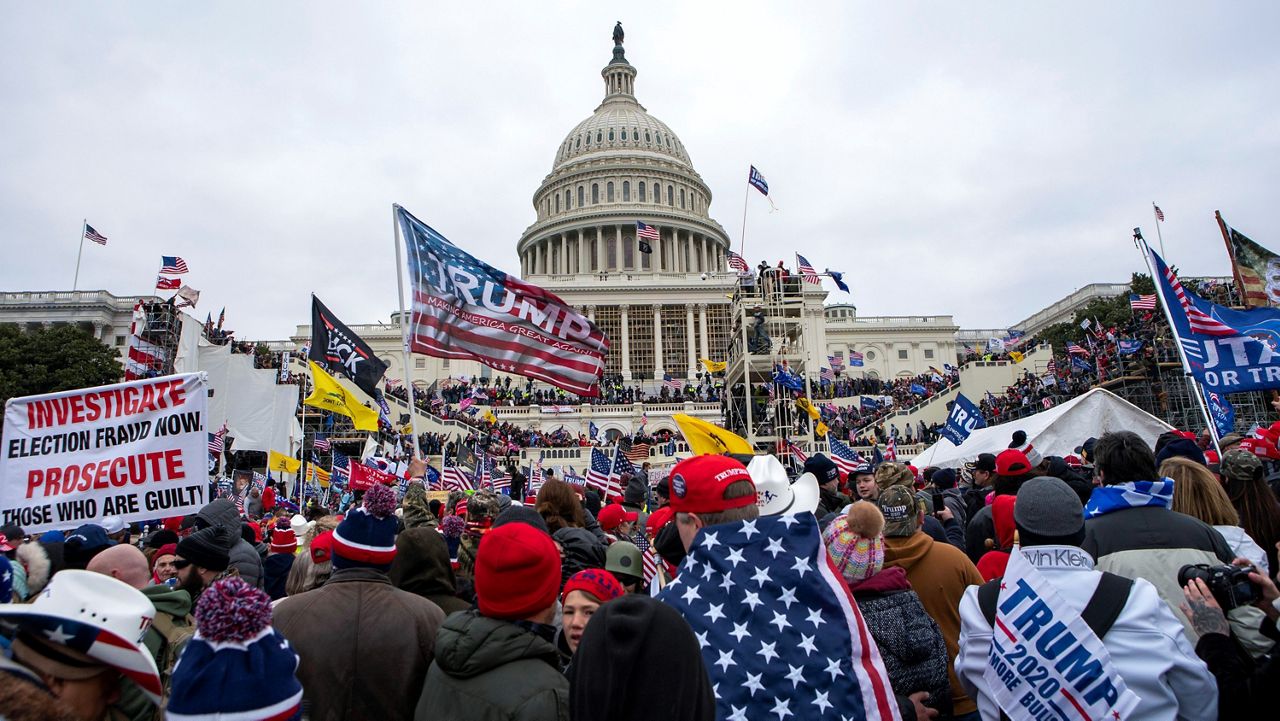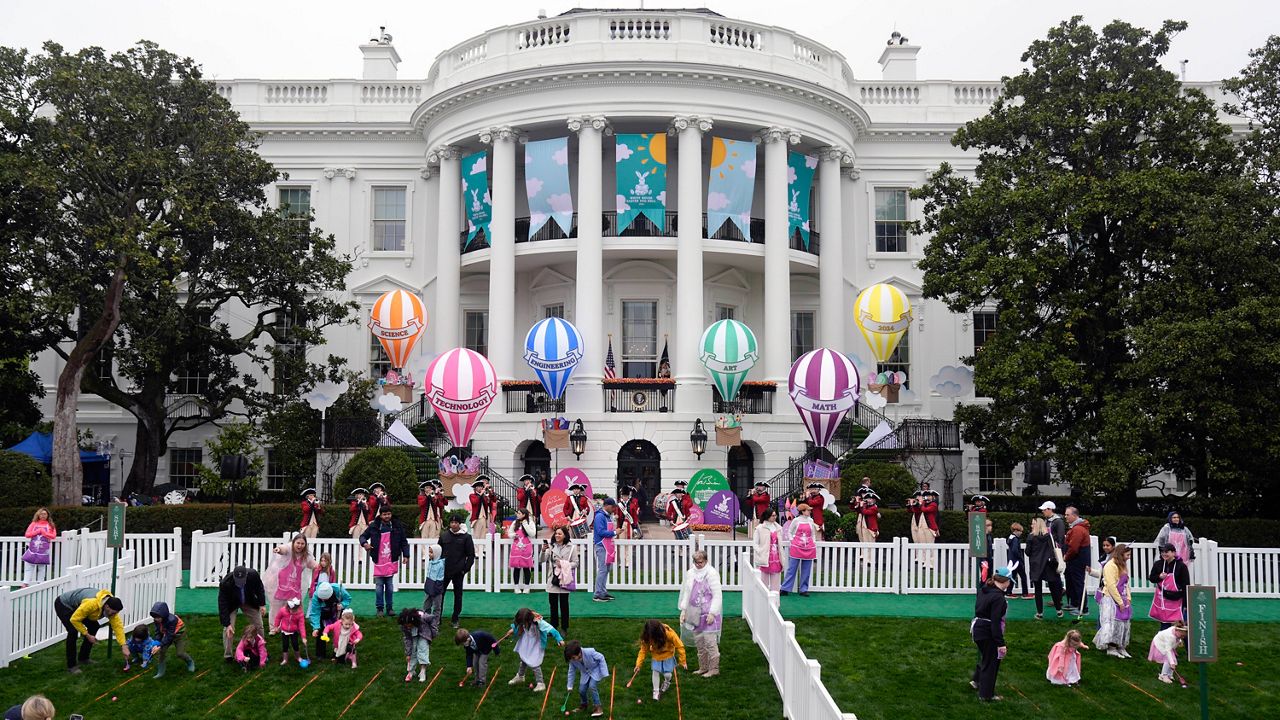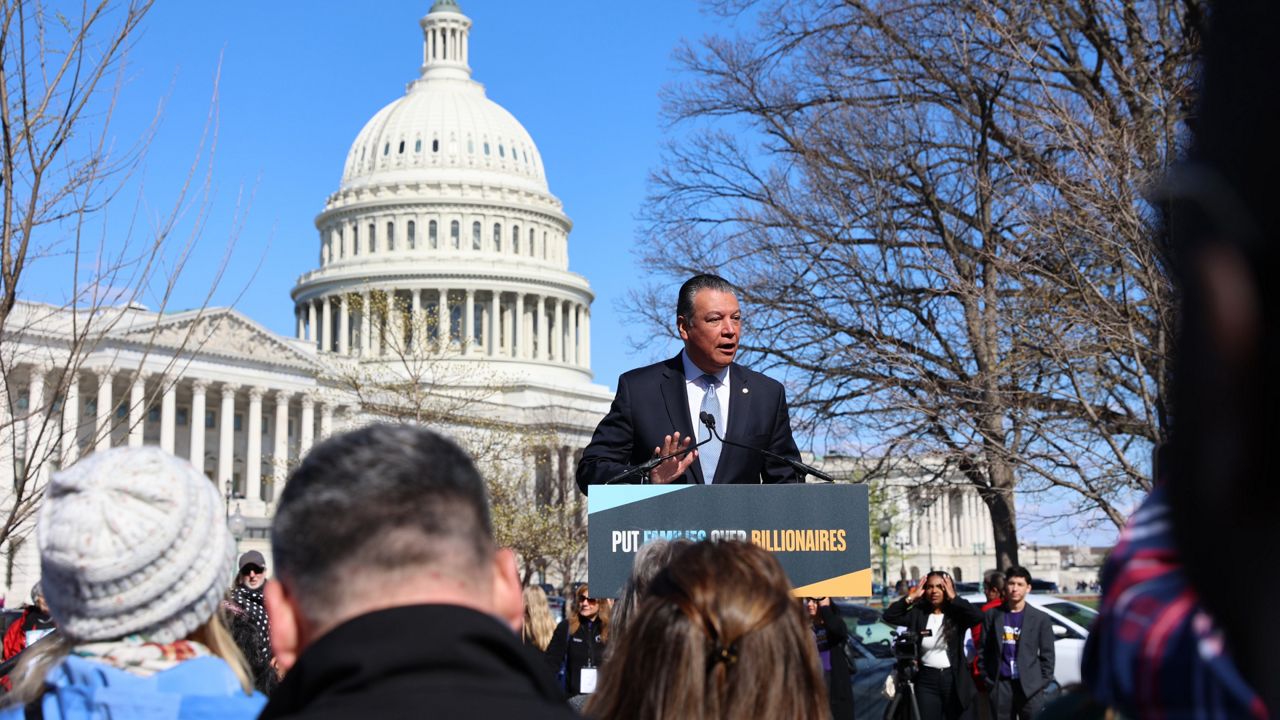In a letter to colleagues on Monday, Senate Majority Leader Chuck Schumer, D-N.Y., pledged that if Republicans continue to block voting rights legislation, the chamber will vote to change Senate rules on Jan. 17, Martin Luther King Jr. Day.
Senate Republicans used the filibuster – the Senate's 60-vote legislative threshold – multiple times in 2021 to stop various pieces of voting rights legislation, including the Freedom to Vote Act and a bipartisan bill aimed at restoring the Voting Rights Act named after the late Rep. John Lewis.
But Schumer's letter suggests that Democrats will not tolerate such obstruction in 2022.
“We hope our Republican colleagues change course and work with us,” Schumer wrote in his letter. “But if they do not, the Senate will debate and consider changes to Senate rules on or before January 17, Martin Luther King Jr. Day, to protect the foundation of our democracy: free and fair elections.”
At a press conference Tuesday, Schumer admitted it will be an "uphill fight" to get such reform passed, but pledged a vote on Jan. 17.
"We’re going to have our vote on the 17th," Schumer said. "It’s an uphill fight. I don't want to give anybody the illusion that we're there, but hopefully we can get 50 of us to come to an agreement."
For such a vote to succeed in the evenly divided Senate, Schumer and Democratic leadership would need to win over moderate holdouts Sen. Joe Manchin, D-W.Va., and Sen. Kyrsten Sinema, D-Ariz.
Both lawmakers support the voting rights bills – with Manchin backing the Freedom to Vote Act and spearheading the bipartisan agreement on the John Lewis Voting Rights Advancement Act – but have expressed skepticisim about changing the Senate's filibuster rule. Manchin and Sinema have both argued that if the filibuster is eliminated, Republicans take control of the Senate, they will advance bills opposed by Democrats.
According to Axios, meetings about rule changes took place over the holiday break with Manchin and other lawmakers, including Sen. Angus King, I-Maine, Tim Kaine, D-Va., and Jon Tester, D-Mont., and will continue this week.
On Tuesday, Manchin told reporters that there have been "ongoing conversations" about changing Senate rules, but noted that going it alone would be a "heavy lift" and it would be his "preference" for a rules change to come on a bipartisan basis.
“I’m talking," Manchin said Tuesday, but added he's "not agreeing to any of this" just yet.
“For us to go it alone ... it ends up coming back at you pretty hard," the West Virginia Democrat said, adding: "Any time there is a carve out, you eat the whole turkey."
Schumer said Tuesday that the nine Senate Democrats who worked on the Freedom to Vote Act, including Manchin, will meet to discuss rule changes to get voting rights legislation passed.
His Republican counterpart, Minority Leader Mitch McConnell, R-Ky., at a press conference of his own said that "it appears as if the Majority Leader is hellbent to try to break the Senate."
Amid reports that Republicans may offer reform to the Electoral Count Act as a compromise instead of more comprehensive voting rights legislation, Schumer said that such a move would be inadequate: "That makes no sense."
Debate over voting rights has come as a number of Republican-led state legislatures have passed bills that restrict access to the ballot box in the last year, including in states like Texas and Florida.
"We must ask ourselves: if the right to vote is the cornerstone of our democracy, then how can we in good conscience allow for a situation in which the Republican Party can debate and pass voter suppression laws at the State level with only a simple majority vote, but not allow the United States Senate to do the same?" Schumer wrote in his letter.
Voting rights advocates have sounded the alarm about the widespread legislation, as well as attempts to install officials loyal to former President Donald Trump that could signal subversion of future elections.
"We must adapt," Schumer wrote. "The Senate must evolve, like it has many times before."
Schumer's letter comes the same week as the one-year anniversary of the deadly Jan. 6 riot at the U.S. Capitol, which saw a mob of Trump supporters storm the U.S. Capitol in an attempt to stop the certification of President Joe Biden's victory in the 2020 election. At a rally immediately preceding the violent insurrection, Trump urged his supporters to "fight like hell" for his presidency.
"Make no mistake about it: this week Senate Democrats will make clear that what happened on January 6th and the one-sided, partisan actions being taken by Republican-led state legislatures across the country are directly linked, and we can and must take strong action to stop this antidemocratic march," Schumer wrote.
Schumer slammed the Republicans and others that still cling to Trump's repeatedly debunked false claims that the 2020 election was rigged.
"Much like the violent insurrectionists who stormed the U.S. Capitol nearly one year ago, Republican officials in states across the country have seized on the former president’s Big Lie about widespread voter fraud to enact anti-democratic legislation and seize control of typically non-partisan election administration functions," the majority leader wrote.
The Huffington Post reported Monday that the seven GOP senators who voted to challenge the results of the 2020 election on Jan. 6, even after the riot, do not feel remorse for their votes.
When asked if he thought Biden's election was legitimate, Alabama Sen. Tommy Tuberville told the outlet, "I don’t think we’ll ever really know because there wasn’t enough investigation."
There is no evidence of widespread voter fraud in the 2020 presidential election, a claim backed up by officials of both parties, including Trump's own former attorney general William Barr. Courts nationwide at the state and federal level rejected claims of voter fraud brought by both Trump and his allies.
"Let me be clear: January 6th was a symptom of a broader illness — an effort to delegitimize our election process, and the Senate must advance systemic democracy reforms to repair our republic or else the events of that day will not be an aberration — they will be the new norm," Schumer wrote.











